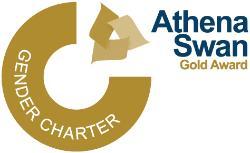"I've been able to contribute directly to changing policy and conditions for parents and carers" Reflections on Athena Swan activity
Published: 21 September 2020
Medical statistician and IHW disability champion Elise Whitley describes how involvement in IHW's equality, diversity and inclusion activities has enriched her working life and allowed her to make a positive difference to culture and practices
Medical statistician and IHW disability champion Elise Whitley describes how involvement in IHW's equality, diversity and inclusion activities has enriched her working life and allowed her to make a positive difference to culture and practices.

I am a medical statistician based in the Social and Public Health Sciences Unit and I am also a carer for a family member with a hidden disability.
Like many others, I suspect, I originally joined an Athena Swan working group as it seemed like something that I "should" be doing. However, after a few meetings I realised that this was an opportunity to directly influence working conditions and policies in the institute as well as the wider university.
I was first a member and am now co-chair, with Jana Anderson, of the IHW Athena Swan maternity, paternity, parental and carer issues group. I have personal experience of being a carer and the working group has given me a voice to share my experiences and concerns. We have worked for several years to raise awareness of the difficulties faced by carers and to advocate for a carers policy, which has been challenging at times, but the university now has a carers policy in place (including the provision of paid and unpaid carers leave) which we were asked to review before its introduction.
Prior to COVID we had planned a carers awareness event including colleagues from the University of Strathclyde, an "Exemplary Carer Positive" employer, and representatives from relevant third sector organisations. Inevitably this went through several iterations as the pandemic evolved but, working with the IHW older workers (WOW) group, we hosted a webinar in June 2021 to mark Carers Week which included a survey for IHW staff carers to help us better understand their experiences. We are continuing to work with the WOW group on carer issues, in particular recognising that carers may have been especially badly affected by the pandemic.
More recently I have taken on the role of IHW Disability Champion, again motivated by personal experience. The institute already has a good record of recognising staff and students with disabilities including holding a highly successful invisible disabilities awareness event in 2019. As a result, we have been contacted by colleagues from other parts of the university to see how we might support them to do something similar. We have also been thinking about other initiatives that IHW might adopt, although these are currently on hold as university-wide policies relating to disability and reasonable adjustments for both staff and students are currently under review. I am looking forward to finding out more about the university’s updated policies and understanding how best to complement these with IHW-led initiatives and would like to hear from any staff and students who have concerns or ideas regarding these.
We are all under pressure to join an endless stream of committees but membership of an Athena Swan working group is a small commitment (generally three meetings per year) and can, as I have found, have a big impact. I have been able to contribute directly to changing policy and conditions for new and expectant parents and, in particular, carers like myself. I’d encourage everyone to find a group that is of direct relevance to them and to start making changes to improve their own working conditions.
Elise Whitley
Medical Statistician (MRC/CSO Social and Public Health Sciences Unit)
IHW Disability Champion
Find out more about IHW's Athena Swan working groups and how to join
First published: 21 September 2020
<< October 2021


